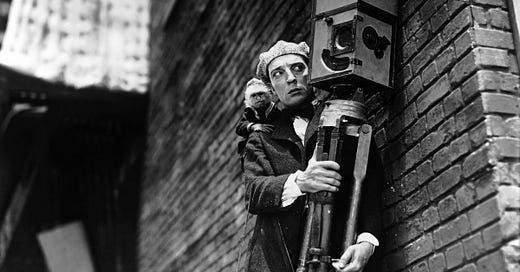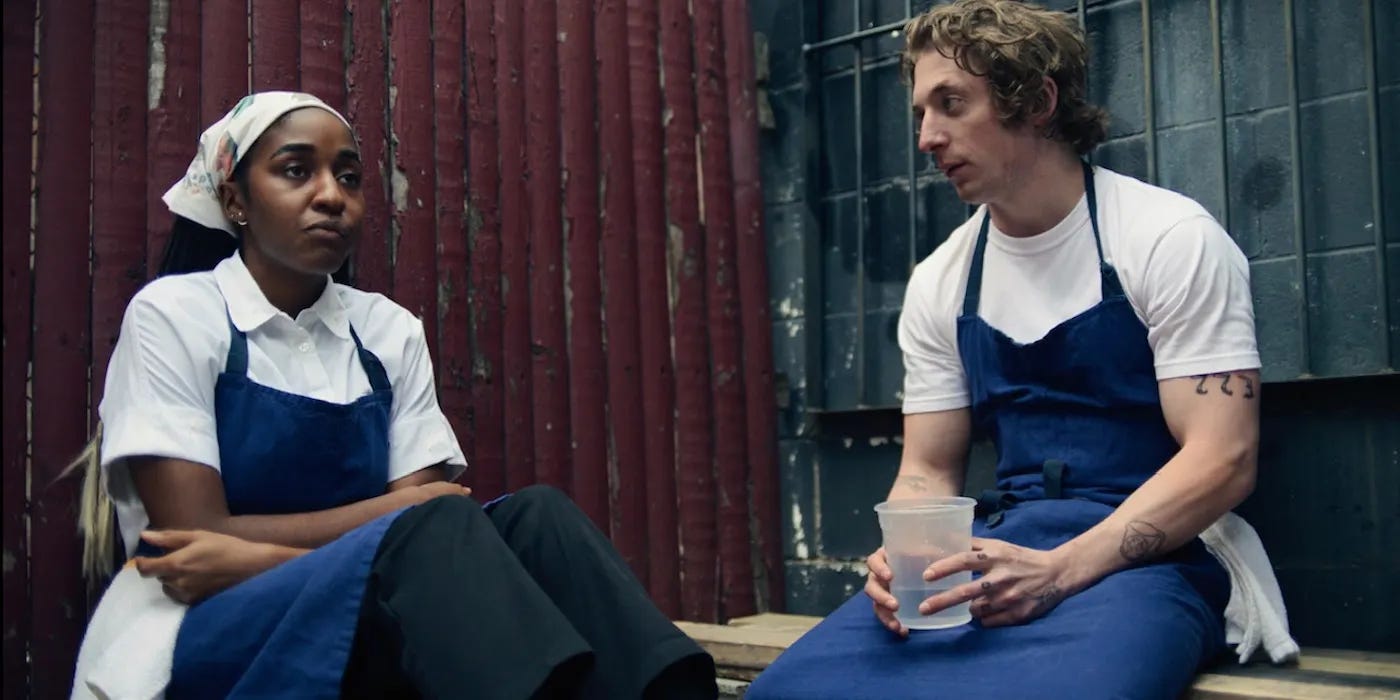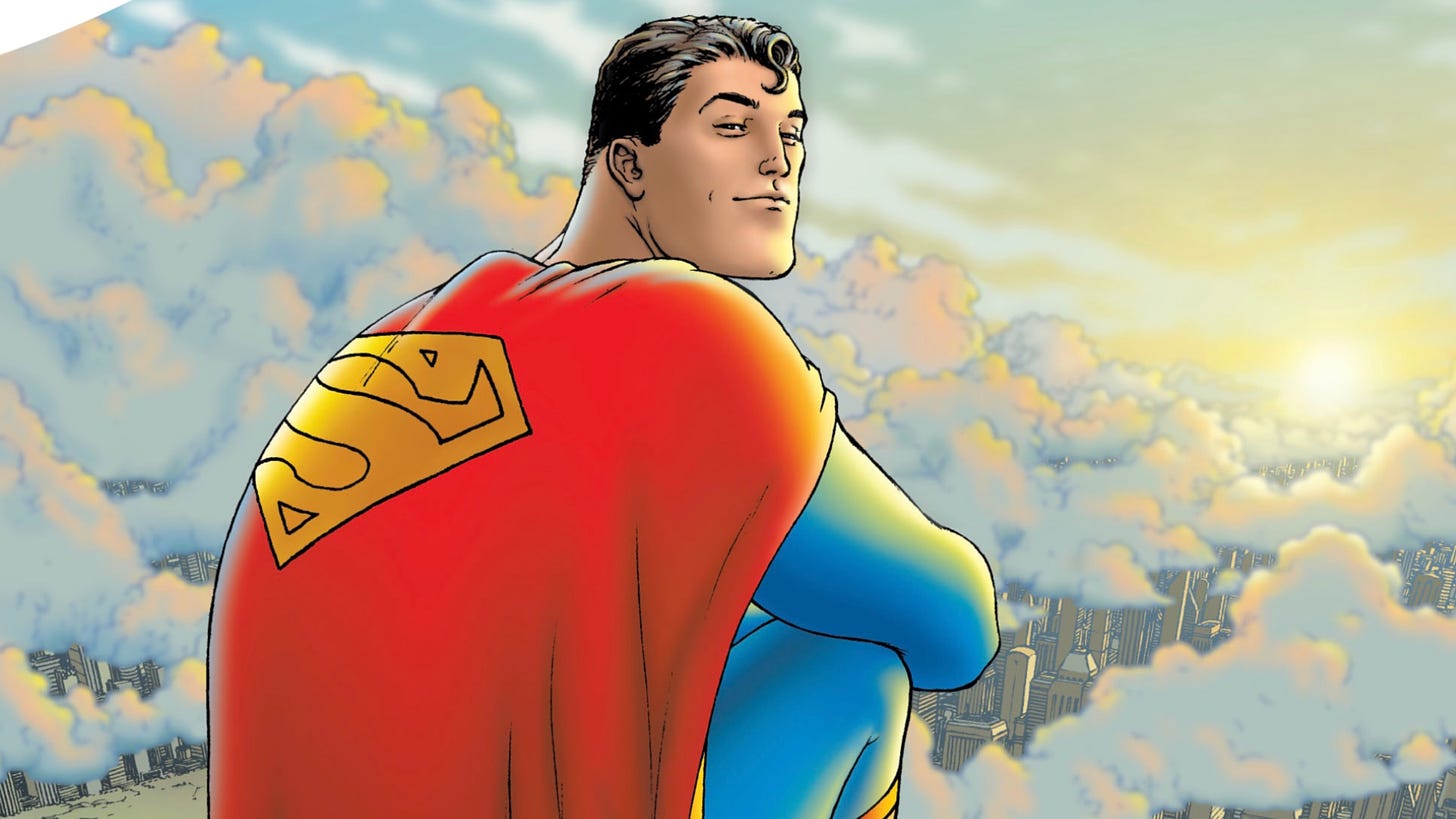Midweek Update: Movies Are Dying, Long Live Movies
Reports on the death of cinema may be somewhat exaggerated.
Last week, A.O. Scott signed off as one of the New York Times’ film critics. While I’m eager to see who will step into his shoes (it’s a prestigious gig and there are no shortage of young, talented film critics who could do an excellent job in that role), Scott, who will move back to reviewing books for the Times, noted some changes from his 23 years on the job. While his quote about toxic fandom is certainly spot-on and worthy of its own column, I briefly wanted to address a point he makes later:
In the fall of 1999, a few months before I was hired, the critic Godfrey Cheshire of The New York Press published a long, agonized, in many ways prescient essay titled “The Death of Film, the Decay of Cinema.” A few years earlier, in The New York Times Magazine, Susan Sontag had proclaimed the end of cinephilia and the “decay” of the art form that sustained it. Jean-Luc Godard, finishing his decade-long video project “Histoire(s) du Cinéma” in 1998, struck a similarly elegiac tone.
And now? I’m tempted to say that the sky is still falling, or falling again, and that it’s the same old sky. The death of cinema is almost as old as cinema itself. In 1935, the German critic Rudolf Arnheim declared that film as an art form had died with the coming of sound, and that what followed the silence was mere commercial propaganda, a bastardized form he prophetically called “television.” After the war, television killed movies all over again, and even when a technological villain wasn’t apparent — the VCR, the internet — things were always bad. Frank O’Hara’s poem “To the Film Industry in Crisis” appeared in 1957. Two decades later Pauline Kael asked “Why Are the Movies So Bad?” The End Times have a way of turning out to have been golden ages all along.
The current apocalypse is that streaming and Covid anxiety are conspiring to kill off moviegoing as we have known it, leaving a handful of I.P.-driven blockbusters and horror movies to keep theaters in business while we mostly sit at home bingeing docuseries, dystopias and the occasional art-film guilt trip. Am I worried? Of course I’m worried. The cultural space in which the movies I care most about have flourished seems to be shrinking. The audience necessary to sustain original and ambitious work is narcotized by algorithms or distracted by doomscrolling. The state of the movies is very bad.
But the movies themselves — enough of them, as always — are pretty good. It’s been a pleasure to see them in your company.
Obviously, there is some nostalgia at play. I would submit that Hollywood, as it stands, has rarely been “good” and yet makes good movies in spite of itself. We can talk all we want about “the Golden Age of Hollywood” and I love those movies from the 30s and 40s, but I also have to acknowledge all the groups and filmmakers that were excluded, degraded, and demeaned within that studio system.
We can bemoan the death of movies as monoculture, but it was a monoculture that was largely based on exclusion. The biggest movies typically starred people who were white and straight and male. Minorities have kept struggling to get a minor toehold in the industry, and while I agree that there are larger forces at work changing the cinema landscape, I cringe a bit at the notion that the party’s over now just as we’re getting a bit more diversity. Yes, movies must now compete with television, social media, video games, etc. but I don’t need everyone to have seen the same movies as me to make conversation.
Do I worry about the future of movies? Not as much as I worry about the future of movie theaters or how we talk about movies. Movies themselves will be fine. If tomorrow no more new movies came out, I could still spend decades sifting through all the ones I haven’t seen and revisiting others that deserve a second look. I want new movies because I want to hear from new voices, and they’re still out there making good work.
But I’m glad Scott points out that people have always bemoaned the end of cinema as if they have a front-row seat to history and not simply the shifting of the tides.
What I’m Watching
I’m caught up with The Bear, and that is easily one of the best first seasons of television I’ve ever seen. Even if the show goes off a cliff in Season Two, that first season will be untouchable. Every element works, it’s a complete story in its own right, it doesn’t feel like “one long movie”, the direction and the performances are outstanding (Ayo Edebiri in particular is a revelation), and the show perfectly walks the line between a hard-edge drama and an uplifting comedy. No one in the show is a “jerk” just because; they all have reasons for why they behave the way they do, and the show’s beauty is in making you empathize with that darkness. I can’t wait to see what’s next.
I also forgot to give my thoughts on the first season of The Last of Us, but briefly, I loved it. It is by far the most successful adaptation of a video game, and while that’s a low bar to clear, it’s a terrific show on its own merits because it understands the thematic through-line of the game isn’t about how many zombies or raiders you can kill, but that love is a great and terrible thing that can give us a reason to live or break us down completely.
We also finished the “Superfan” episodes of The Office on Peacock, and they really are for people who have watched the show so many times that they’ll appreciate some added material whether that material is good or not. There are a few gems scattered about, but most of the stuff that was cut from the first six seasons should have been cut. It was a fine curiosity, but we’ll stick to Office Classic for our next rewatch.
I’ve also finally started watching the third season of Derry Girls, which remains a delight. The show is also doing a Wet Hot American Summer thing where the actors who are supposed to be teenagers do not look like teenagers but that only makes it funnier.
Finally, our current wind-down show is a rewatch of Downton Abbey. We’re currently in Season 5, which, if you were to watch it seriously, is not great television. Edith Crawley is a monster who keeps snatching back her child from adoptive parents (as if those parents aren’t capable of truly loving a child like a birth parent) and then there’s Ms. Bunting. Ms. Bunting is supposed to be someone who “reawakens” Tom’s rebellious spirit, but she’s a jerk! It’s not that she’s left-wing or even left-wing in the way Tom used to be. She just can’t let things go and is supremely rude. Even Tom at his most left-wing never made passive aggressive jabs at people. Anyway, Ms. Bunting sucks and she should fall down a well.
What I’m Reading
I just finished All-Star Superman, a book I had read halfway through multiple times but never finished for reasons I can’t explain since I love the first half of the book. I decided to finally read the whole thing since James Gunn announced he was directing the new Superman movie, and was using All-Star Superman as one of his inspirations.
At first, that seemed like an odd fit. Gunn is known for his off-kilter visions, and the closest he’s ever come to Superman before is producing the evil Superman child movie, Brightburn. So why would the guy behind Peacemaker pursue a take on Superman that embraces his nobility and kindness?
My theory is that A) Gunn has a soft spot (which you can see in the Guardians of the Galaxy movies), and B) Yes, the Superman of All-Star Superman is upright, kind, heroic, and what we’d expect from the character, but All-Star Superman is filled with the kind of weird stuff that Gunn clearly loves. There’s two chapters of Superman in the Bizarro world (where everything is the opposite); there are monsters that devour time and energy; and attempts to save the miniature world of Kandor.
I don’t know what Gunn’s movie will look like, but I can understand the attraction to the material.
In other reads:
Chris Godfrey wrote a great profile of Djimon Hounsou in The Guardian where the actor talks about his astonishing journey yet still feeling cheated by the lack of opportunities he’s received. He’s not wrong! We know Hounsou is a great actor, and yet he seems to be repeatedly relegated to supporting roles. You almost cherish when he gets a good one like in Shazam! Fury of the Gods, which isn’t a good movie, but has a good subplot with Hounsou’s Wizard bantering with Jack Dylan Grazer’s Freddy Freeman. Anyway, Hounsou deserves better, and while I understand he’s a distinct presence (not a lot of statuesque actors hailing from Benin and Lyon), that’s only more reason to use him in movies and TV series, not less.
Speaking of actors looking back on their careers, The Hollywood Reporter’s Rebecca Keegan has a fantastic talk with Ben Affleck. I’ve always been an Affleck guy even in his fallow periods like the mid-2000s where he was more of a punchline than a superstar. Aside from Affleck being a good, charismatic actor who has also directed strong mid-budget features for adults, is acutely aware of his image. I only interviewed him once during a roundtable for Gone Baby Gone, and while he was funny and charming, you could also tell he was choosing his words carefully. He strikes me as a relatively grounded guy (or as grounded as you can be after becoming a famous Oscar-winner when you’re 25) who knows he’s living his life in public (life is probably weird when you step outside for a smoke and instantly become not only tabloid fodder but a meme). Anyway, I don’t know if I’ll like his new movie Air or if his Artists Equity plan will work out, but he’s an intelligent guy, a good actor, a good director, and I’m still rooting for him (as much as a millionaire movie star needs me to root for him).
I meant to share this a few weeks ago when I read it, but I bristled a bit at this article from Jeremy W. Peters and Nicole Sperling in The New York Times. The thrust of the article is how much shows and movies based on real events owe it to their subjects to stay true to the facts. For my part, I feel like fiction is fiction. We know these are dramatizations, and if we want to dig into facts, then we need to crack open a history book. The “issue” here is that the Times is citing qualms from people who are still alive or have close relatives who are still alive and can take umbrage with these depictions. What I find interesting is that the people who are so upset are those who typically had control of their own narratives, and now there’s a more popular narrative that they don’t control. The Royal Family could not care less about what’s “true”; they care about their image and The Crown sometimes contradicts that perception. If the Royal Family doesn’t like it, too bad! Creators need to make choices for what best serves their story. Sometimes reality is the better path and creators mess up by going with their fiction, but to say that clearly fictionalized works need to have fact-checkers mistakes fiction for history lessons. I’m pretty sure a helicopter didn’t fly into 1857 Nicaragua, but there’s a satirical reason it does in Alex Cox’s Walker.
What I’m Hearing
I’ve been waiting for Natalie Holt’s excellent score for Loki: Season 1 to arrive on vinyl, and today it finally does (or at least you can order it from Mondo). A lot of the MCU’s Phase 4 has been a whiff for me, but the first season of Loki was a bright spot, and I love the way the score is at turns mournful, epic, and playful.








I’ve heard the argument that movies are dying many times over the years and it’s always reminded me of the classic struggle between generations. The current generation thinks the older one is out of touch and the older one is convinced the current generation will bring about the end of days. This has been going on for thousands of years and humanity is still around…and so are movies.
The continuous, societal push toward greater diversity, that is slowly but surely having an impact, is the best hope for reinvigorating the industry. Instead of a new generation we just need a new perspective on inclusion.
There are great lyrics in the song “It’s Different for Girls” by the band Of Montreal:
“It’s different for girls they don’t…create an elite or poison the game so no one else can compete.”
This is gender commentary but imagine if all groups had an equal opportunity to create and engage with art? There’d be a lot more stories to tell.